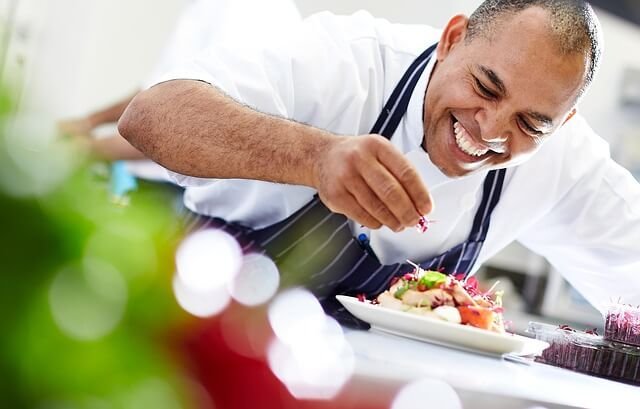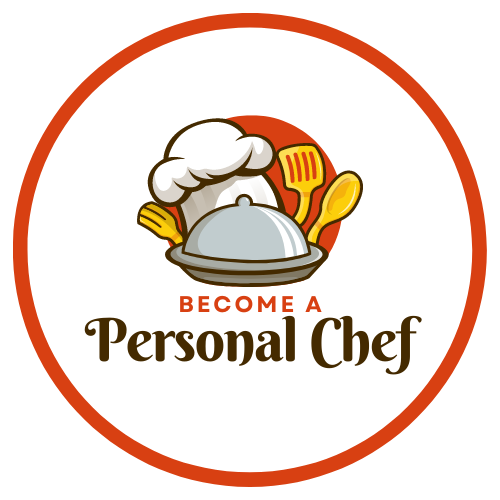Table of Contents
ToggleAccreditations Needed for Personal Chefs
Have you always had a passion for cooking but never knew how to turn it into a career? Becoming a personal chef might be the perfect solution for you! Not only can you do what you love every day, but you can also make a living out of it.
However, before starting your own personal chef business, there are some accreditations and topics that you should be familiar with. These will not only help you become a better chef but also give credibility to your services and attract potential clients.
Culinary Education
While it is not mandatory, having some form of culinary education can greatly benefit personal chefs. This could include attending a culinary school, taking cooking classes or workshops, or even pursuing a degree in culinary arts.
Having a formal education will not only enhance your skills and knowledge but also provide you with a strong foundation in the fundamental techniques of cooking. It will also show potential clients that you are serious about your craft and have invested time and effort into perfecting it.
In this blogpost, we will discuss what accreditations are necessary to run a personal chef business and what topics you should know to become successful in this field.
Certifications for Personal Chefs
Firstly, there is no formal education required for becoming a personal chef. However, some certifications can help boost your credibility as a professional chef.
One such certification is the American Personal & Private Chef Association (APPCA) certification program. This program offers courses on various aspects of running your own business as well as culinary training programs.
Another accreditation that may be necessary is the ServSafe Food Protection Manager Certification. This certification ensures that you have knowledge of food safety practices and regulations.

Topics Personal Chefs Should Be Comfortable With
As a personal chef, it’s important to have knowledge about different cuisines and dietary restrictions. Some popular cuisines include Italian, French, Mexican, Thai, Chinese, Japanese, and Indian cuisine.
Additionally, dietary restrictions such as gluten-free or vegan diets are becoming increasingly popular among clients. It’s important to have knowledge about these diets so that you can accommodate your client’s needs.
Marketing Your Business
Another essential topic for personal chefs is marketing your business. In order to gain clients and grow your business successfully, it’s important to have good marketing strategies in place.
Social media platforms such as Facebook and Instagram are great ways to showcase your skills and connect with potential clients. Additionally, having a website that showcases your services and previous work can also help attract new clients.

Managing Your Business Finances
Running a personal chef business also comes with financial responsibilities. It’s important to have knowledge about accounting, budgeting, and taxes. These tasks may seem daunting, but with proper organization and planning, you can successfully manage your business finances.
Accounting
Keeping track of your income and expenses is essential for any business. As a personal chef, you will need to keep detailed records of the services you provide, as well as any costs associated with running your business. This includes food ingredients, transportation costs, marketing expenses, and any other overhead costs. It’s important to keep all receipts and invoices organized for tax purposes.
Budgeting
Creating a budget is crucial for managing your finances effectively. Start by determining how much income you need to cover your personal expenses and how much profit you want to make from your business. Then allocate funds for different categories such as ingredients, transportation, marketing, and equipment. Be realistic with your budget and regularly track your expenses to ensure you are staying within your means.
Tracking Your Expenses
Keeping track of all your expenses is vital for understanding where your money is going. This includes both personal and business expenses, as they can easily overlap when you are self-employed. Consider using a spreadsheet or financial software to record and categorize all of your expenses. This will help you identify areas where you may be overspending and make adjustments accordingly.
Managing Cash Flow
As a personal chef, you may have times where business is slow, and other times where you have an influx of clients. It’s important to plan for these fluctuations in cash flow so that you can cover any necessary expenses during slower periods. One way to do this is by setting aside a portion of your earnings during busy times to use during slower months. You can also consider offering seasonal specials or promoting your services during slower periods to help bring in more business.
Creating a Budget
Having a clear budget for both personal and business expenses is crucial for managing your finances. Start by listing all of your fixed expenses, such as rent, utilities, and insurance. Then, add in variable expenses like groceries, gas, and dining out. Take into account any debt payments you may have as well. Once you have a comprehensive list of expenses, compare it to your income to see if there are any areas where you can cut back or make adjustments.
Having a basic understanding of these topics will help you manage your finances effectively and avoid any financial pitfalls.

Networking in the Industry
Lastly, networking is an essential part of growing your personal chef business. By building relationships with other professionals in the industry, you can gain valuable insights, learn new techniques, and even get referrals for potential clients.
One way to network is by joining local or online groups specifically for personal chefs. These groups provide a platform for professionals to share their experiences, ask for advice and recommendations, and connect with others in the same field.
Additionally, attending conferences and workshops related to cooking or small business management can also be incredibly beneficial. Not only will you learn from experts in the industry, but you’ll also have the chance to meet and network with other personal chefs.
Another great way to make connections is by collaborating with other businesses or professionals. This could mean partnering up with a nutritionist or dietician to offer meal planning services
Attending events such as culinary competitions or food festivals can help you meet other chefs and industry professionals. Building relationships with other chefs can lead to collaborations on future projects or even referrals for new clients.
Accreditations Needed for Personal Chefs
Becoming a personal chef can be a fulfilling career path for those who love cooking. While there are no formal education requirements, obtaining certifications such as the APPCA certification or ServSafe Food Protection Manager Certification can help boost credibility.
Additionally, having knowledge about different cuisines, dietary restrictions, marketing strategies, managing finances, and networking in the industry are all essential topics for success in this field.
By familiarizing yourself with these topics, you’ll be well on your way to running a successful personal chef business!
American Personal & Private Chef Association (APPCA) certification program
ServSafe Food Protection Manager Certification

